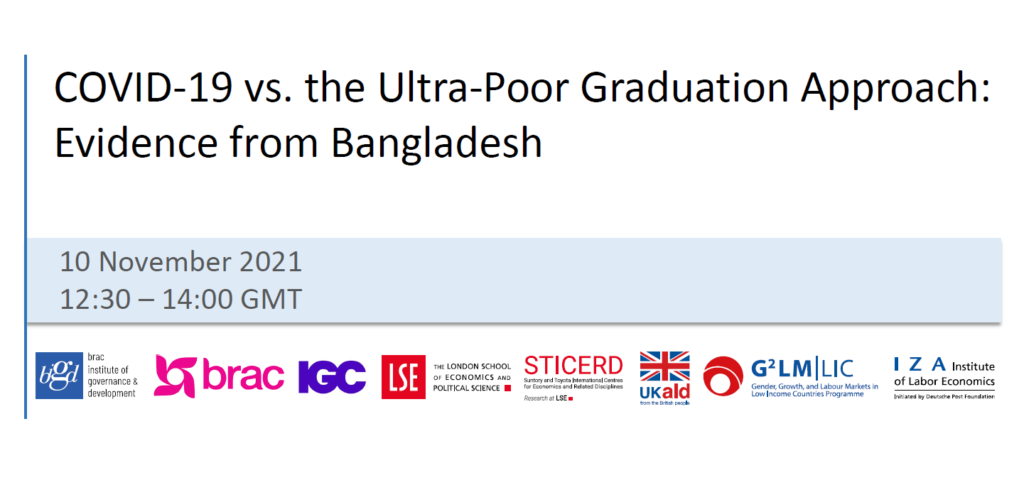Hybrid Event
The poorest and the most vulnerable households in low-income countries have been hit hardest by COVID-19. In Bangladesh, an additional 22.9% of the population fell below the poverty line. Against this backdrop, BIGD, BRAC, G²LM|LIC, LSE, and STICERD are jointly organizing a hybrid event in which Oriana Bandiera and Imran Matin discuss the impact of the pandemic on the 2007 cohort of beneficiaries of BRAC’s Ultra-Poor Graduation (UPG) program in rural areas of Bangladesh, a research project by BIGD and LSE, 2021. The event will be held on November 10th, 2021, from 12:30 to 2pm (GMT+1) at the British Academy in London.
The findings of the research project show that the participants who successfully escaped the poverty threshold are more likely to have better jobs and productive assets at the beginning of the COVID-19 pandemic. They are also more likely to keep good jobs during these unprecedented times and suffer less from COVID-19 induced migration. These findings suggest that, in this economic crisis, the graduation approach seems to be an effective tool to ensure job security for household members to stay back in their living places.
You can register for the event here.
